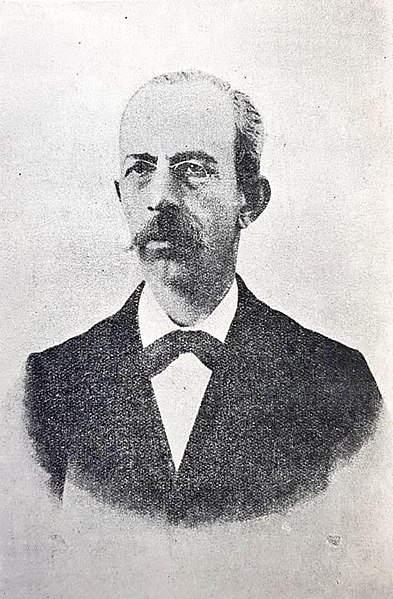Rashid Ali al-Gaylani (Al-Gailani) was an Iraqi politician who served as Prime Minister of the Kingdom of Iraq on three occasions: from March to November 1933, from March 1940 to February 1941 and from April to May 1941. He is chiefly remembered as an ardent Arab nationalist who attempted to remove British influence from Iraq by starting a coup against the government in 1941. During his brief tenures as prime minister in 1940 and 1941, he attempted to negotiate settlements with the Axis powers during World War II in order to counter British influence in Iraq.
Rashid Ali al-Gaylani
Rashid Ali al-Gaylani and Haj Amin al-Husseini, speaking at the anniversary of the 1941 Iraqi coup in Berlin
Al-Gaylani with Egyptian president Gamal Abdel Nasser in Cairo, August 1958
Arab nationalism is a political ideology asserting that Arabs constitute a single nation. As a traditional nationalist ideology, it promotes Arab culture and civilization, celebrates Arab history, glorifies the Arabic language as well as Arabic literature, and calls for the rejuvenation of Arab society through total unification. It bases itself on the premise that the people of the Arab world — from the Atlantic Ocean to the Arabian Sea — constitute one nation bound together by a common identity: ethnicity, language, culture, history, geography, and politics.
The Aqaba Flagpole in Aqaba, Jordan bearing the flag of the Arab Revolt. The Aqaba Flagpole is the sixth tallest free standing flagpole in the world.
Ibrahim al-Yaziji (1847–1906)
Members of the Arab Higher Committee, 1936; clockwise, Jamal al-Husayni, Hussein Khalidi, Yaqub al-Ghusayn, Fuad Saba, Alfred Roke, Abdul Latif Es-Salah, Ahmed Hilmi, Amin al-Husayni, and Raghib al-Nashashibi.
Egyptian president Gamal Abdel Nasser returns to cheering crowds in Cairo after announcing the nationalization of the Suez Canal Company, August 1956.







